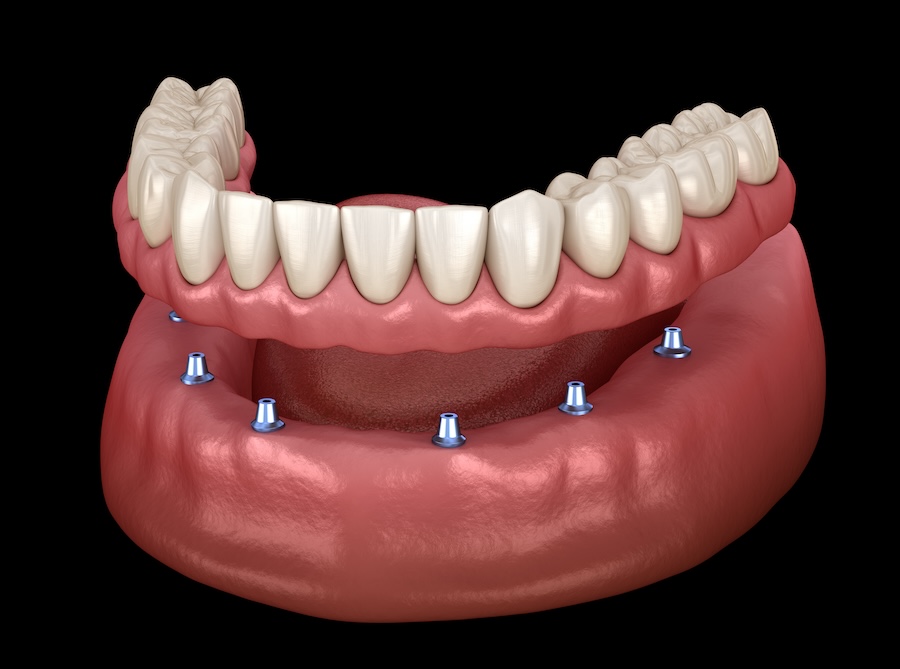
Dentures vs. Dental Implants: Which is Right for You?
September 7, 2024 9:00 amIf you’re missing teeth, you’ve probably come across two main replacement options: dentures and dental implants. Both are reliable solutions, but they come with different pros and cons. Choosing the best one depends on your specific needs, budget, and long-term oral health goals. Let’s break down the key differences to help you make an informed decision.
Dentures: A Tried-and-True Option
Dentures have been around for decades and are a common solution for replacing missing teeth. They are custom-made to fit your mouth and can be either full dentures (replacing all teeth on the upper or lower arch) or partial dentures (replacing a few missing teeth).
Cost-Effective: Dentures are generally more affordable upfront than dental implants.
Non-Surgical: Unlike implants, dentures don’t require any surgery, making them a less invasive option.
Quick Solution: Dentures can be made relatively quickly, providing a fast way to restore your smile.
Pros of Dentures:
Less Stability: Dentures can sometimes slip or move, especially while eating or talking.
Bone Loss: Dentures don’t stimulate the jawbone like implants do, which can lead to bone deterioration over time.
Maintenance: Dentures need to be removed for cleaning and may require adjustments or replacements as your mouth changes.
Cons of Dentures:
Dental Implants: A Long-Term Investment
Dental implants are titanium posts surgically placed into the jawbone, acting as a replacement for natural tooth roots. Implants are ideal for those looking for a more permanent and stable solution to missing teeth. They can replace individual teeth or support a full arch with implant-supported dentures.
Stability: Implants are fixed in place and don’t move or slip, making them feel more like natural teeth.
Bone Health: Because implants fuse with the jawbone, they help maintain bone density and prevent bone loss.
Longevity: With proper care, implants can last a lifetime, making them a long-term investment.
Pros of Dental Implants:
Higher Cost: Implants typically cost more upfront than dentures, though many patients find the long-term benefits worth the investment.
Surgical Procedure: Dental implants require surgery and a longer healing period compared to dentures.
Time-Intensive: The implant process can take several months, as it involves surgery, healing, and placement of the final restoration.
Cons of Dental Implants:
What About Partial Dentures?
If you’re only missing a few teeth, partial dentures may be an option. However, some patients find partial dentures less comfortable than implants. While implants offer greater stability, partial dentures provide a less invasive and more cost-effective alternative.
Which Option is Right for You?
The decision between dentures and dental implants depends on several factors, including your oral health, lifestyle, and budget. If you’re looking for a quicker, less expensive option, dentures might be the way to go. However, if you want a long-lasting, stable solution that maintains your bone health, dental implants could be a better fit.
Personalized Solutions at High Point Dentistry in Austin & Round Rock, TX
At High Point Dentistry, with locations in East Austin, South Congress, South Austin, and Round Rock, our dedicated team of dental professionals is here to help you make the best decision for your oral health. Whether you’re considering dentures, dental implants, or another solution, we’ll provide a personalized consultation to find what works best for your needs. Contact us today to schedule an appointment!
Contact UsCategorised in: Restorative Dentistry

